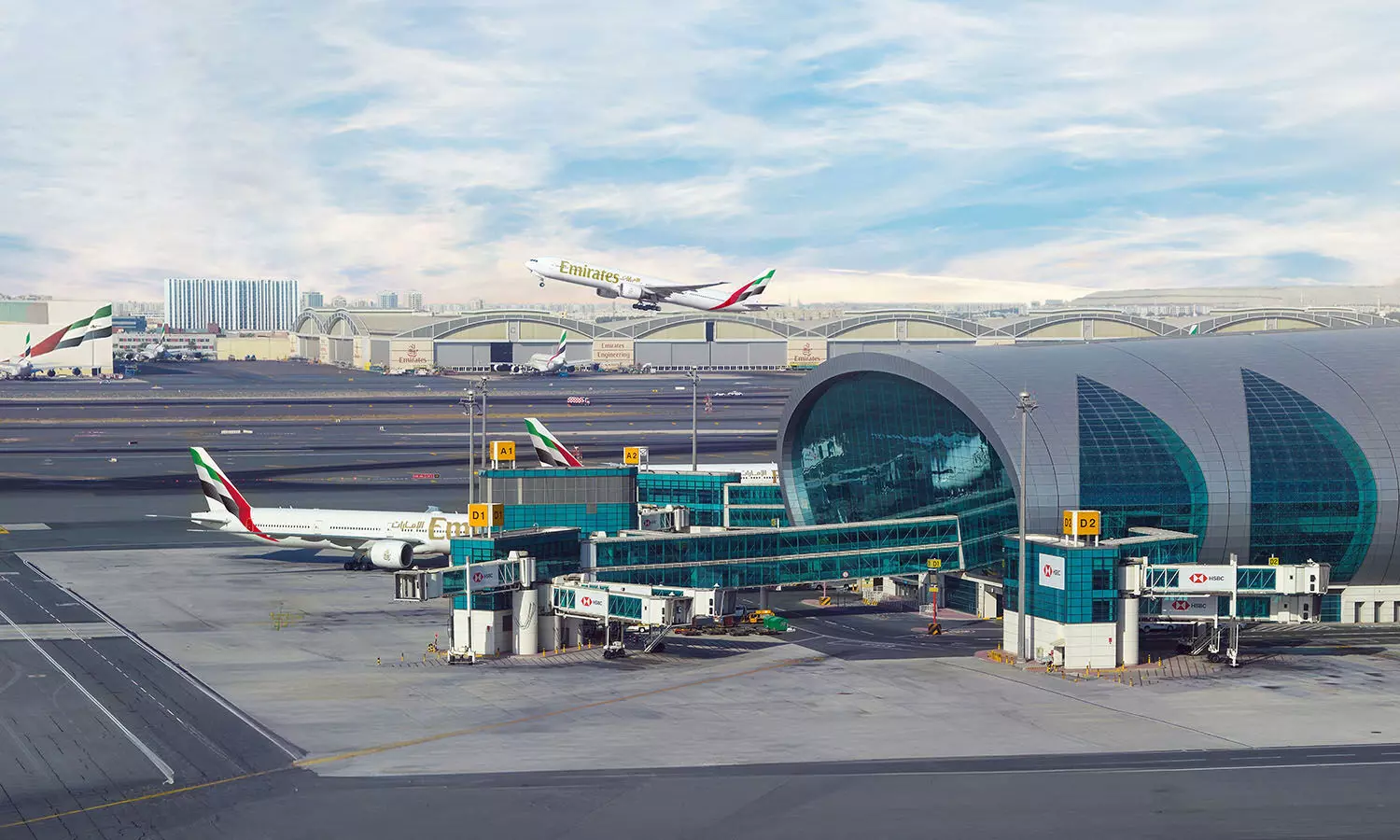
Dubai, the world's gateway for global logistics
Dubai is not just keeping pace — it is actively shaping the future of global air cargo.

Dubai has firmly established itself as a global powerhouse in air cargo logistics, leveraging its strategic geographic location, cutting-edge infrastructure, and progressive business policies.
Positioned at the crossroads of Europe, Asia, and Africa, the emirate is within an eight-hour flight of two-thirds of the world’s population. This unique advantage enables rapid global connectivity, making Dubai an indispensable node in international trade.
As e-commerce, pharmaceuticals, and perishables drive increasing demand for efficient and reliable air freight, Dubai’s continued investment in cargo infrastructure ensures it remains at the forefront of global logistics.
Dubai’s strategic location and global connectivity
Dubai’s location enhances its position as a time-sensitive logistics hub, serving as a critical link between emerging and established markets. The emirate’s proximity to key maritime routes, including the Strait of Hormuz, enables international trade flow and strengthens its role in multimodal transport, allowing seamless integration between air, sea, and land freight networks.
According to Jonathas Escobar, National Air Logistics Manager at Kuehne+Nagel, "Dubai serves as a key hub for global air cargo trade, connecting airlines, freight forwarders, and customers. The real challenge is transforming this advantage into tangible value for our customers." Kuehne+Nagel has expanded its Global Gateway project to include Dubai. The company utilises Dubai as a major hub for its sea-air logistics solutions, which combine the speed of air freight with the cost efficiency of ocean shipping.
Similarly, DHL Express has capitalised on Dubai’s unique location by consolidating demand from multiple regions. Bachi Spiga, Vice President of Network Operations for DHL Express Middle East & North Africa, notes: "Dubai enables easy access to major markets within a 4-to-6-hour flight time, covering Europe, Africa, the Near East, and Central Asia. Our network benefits from these economies of scale, allowing for efficient cargo routing through Dubai."
The role of Dubai’s twin airports in air cargo growth
Dubai International Airport (DXB) and Al Maktoum International Airport (DWC) form the backbone of the emirate’s air cargo ecosystem, supporting a vast and diverse range of industries.
One of the busiest international airports in the world, DXB plays a crucial role in air freight, primarily through belly-hold cargo transported on passenger flights. DXB offers seamless access to more than 155 destinations worldwide.
"We have been operating at Dubai Airport for over 30 years and are actively expanding our footprint at DWC. As the airport transitions into Dubai’s primary hub, we are aligning our operations to maximise its potential."
Bachi Spiga, Vice President of Network Operations for DHL Express Middle East & North Africa
The airport has continually expanded its cargo handling capabilities, with the Cargo Mega Terminal (CMT) playing a crucial role in boosting capacity. Designed with automated storage and retrieval systems, the CMT has streamlined cargo operations, enabling faster processing and efficient freight management. Additionally, DXB has implemented automation and AI-driven solutions to further accelerate processing times and enhance operational efficiency.
DWC, strategically located in Dubai South, is envisioned as the world’s largest cargo hub, with an ultimate capacity of 12 million tonnes annually. As a purpose-built logistics gateway, DWC offers state-of-the-art facilities tailored for dedicated freighter operations, attracting global air cargo giants and freight forwarders. Its proximity to Jebel Ali Port ensures seamless integration between sea and air transport, significantly reducing transit times for shipments moving between Asia, Europe, and Africa.
DHL has already integrated DWC into its long-term expansion strategy. Spiga highlights: "We have been operating at Dubai Airport for over 30 years and are actively expanding our footprint at DWC. As the airport transitions into Dubai’s primary hub, we are aligning our operations to maximise its potential."
Emirates is a key enabler of Dubai’s emergence as a global logistics hub through its cargo division, Emirates SkyCargo. Operating from state-of-the-art facilities at Dubai International Airport and Al Maktoum International Airport, the airline provides seamless air freight connectivity across Asia, Europe, Africa, and the Americas. Its ability to integrate with Dubai’s ports, free zones, and multimodal transport infrastructure makes Emirates not just a carrier but a core logistics player in the region’s global trade ecosystem.
"Dubai serves as a key hub for global air cargo trade, connecting airlines, freight forwarders, and customers. The real challenge is transforming this advantage into tangible value for our customers."
Jonathas Escobar, National Air Logistics Manager, Kuehne+Nagel
Connectivity across the UAE
Dubai’s air cargo ecosystem is further strengthened by regional integration with Abu Dhabi and other key logistics hubs. Etihad Cargo, operating from Abu Dhabi International Airport, plays a vital role in the region’s air freight network by seamlessly connecting the UAE and the broader Middle East.
"From our hub in Abu Dhabi, we pick up and deliver our customers' shipments from all over the UAE and the Middle East region. By leveraging bonded corridor access, world-class infrastructure, and cutting-edge digital tools, Etihad Cargo provides resilient, responsive, and customer-focused supply chain solutions across the UAE and the whole Middle East region," says Stanislas Brun, Vice President Cargo, Etihad Cargo.
Dubai’s free zones: A catalyst for seamless trade
Dubai’s specialised free zones play a crucial role in facilitating air cargo operations, offering tax benefits, 100% foreign ownership, and expedited customs clearance.
Escobar emphasises that Dubai South Free Zone, where Kuehne+Nagel operates, is particularly beneficial. "With bonded warehouses, bonded corridors, and expedited customs clearance—including pre-clearance and consolidated customs duty payments—we ensure rapid cargo movement. This means shipments can be processed and delivered within just a few hours of airport arrival."
DHL also takes advantage of free zone efficiency. "These zones provide a streamlined customs clearance process, significantly reducing turnaround times for goods in transit. Additionally, their multimodal capabilities allow for seamless movement between air, road, and sea freight," Spiga explains.
Dubai’s leadership continues to implement forward-thinking policies to strengthen the emirate’s global logistics presence. The Dubai Silk Road Strategy enhances multimodal connectivity and fosters international trade partnerships, solidifying Dubai’s position as a key logistics hub. Meanwhile, investments in smart logistics and digital transformation, including AI and automated warehousing, are streamlining cargo operations, improving efficiency, and reinforcing Dubai’s status as a global leader in air freight and supply chain innovation.
"By leveraging bonded corridor access, world-class infrastructure, and cutting-edge digital tools, Etihad Cargo provides resilient, responsive, and customer-focused supply chain solutions across the UAE and the whole Middle East region"
Stanislas Brun, Vice President Cargo, Etihad Cargo
Sustainability: The next frontier in air cargo
As the industry shifts towards decarbonisation, logistics players in Dubai are leading the charge.
"Kuehne+Nagel is committed to driving sustainable air freight solutions," says Escobar. "Aligned with our Vision 2030, we actively support the adoption of SAF through partnerships with leading airlines, helping reduce our carbon footprint in air logistics."
DHL is also implementing a range of green initiatives. "We are transitioning our fleet to electric vehicles for last-mile deliveries, investing in sustainable aviation fuel, and building carbon-neutral facilities powered by renewable energy," says Spiga. The company has also introduced uniforms made from recycled materials and installed energy-efficient LED lighting in its offices to cut energy consumption.
Future outlook: Dubai’s continued air cargo dominance
Dubai’s ongoing investments in next-generation cargo infrastructure underscore its ambition to remain a dominant force in global air freight. The emirate’s strategic focus on logistics innovation, sustainability, and smart infrastructure will ensure it continues to attract top-tier logistics providers and multinational corporations.
As trade volumes grow and supply chains become more dynamic, Dubai is not just keeping pace — it is actively shaping the future of global air cargo. With DWC’s expansion, enhanced multimodal connectivity, and a regulatory framework that fosters growth, Dubai is set to remain a pivotal logistics hub driving the future of international trade.

